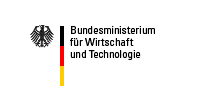smartOR - Innovative communication and network architecture for the modular integrated OR of the future
Consortium
The smartOR consortium consisted of the following research facilities, companies and organizations:
The following research facilities
- Chair of Medical engineering (mediTEC),
Helmholtz Institute for Biomedical Engineering at RWTH Aachen University - Philips Chair for Medical Information Technology (medIT),
Helmholtz Institute for Biomedical Engineering at RWTH Aachen University - Innovation Center Computer Assisted Surgery (ICCAS),
Universität Leipzig
cooperated with the industry partners
- LOCALITE GmbH
- Richard Wolf GmbH
- SurgiTAIX AG
- Synagon GmbH
and VDE/DGBMT
Moreover, several clinics supported the smartOR project as associated project partners.
Funding


(Laufzeit: 4/2010-3/2013)
Overview
smartOR is a collaborative research project within the "autonomik" funding program of BMWi (Bundesminusterium für Wirtschaft und Technologie). The focus of the research and development work consisted of the development of an innovative communication and network architecture for the modularly adaptable integrated operating room of the future. A total of 14 partner institutions developed the innovative aspects and modules of the smartOR system. At conhIT 2013, a demonstrator for evaluation and demonstration of the technology was presented.
Key aspects:
- Smart networks for medical products
- Ergonomic, human engineering and man-machine interaction in networked systems
- Standardization and risk management
Goals
The project aim was to develop innovative concepts for a modular, flexible integration of operational systems based on Internet technologies. This concerns in particular the modular integration of imaging, computer-aided navigation, mechatronic instruments and monitoring. During the project, the technical feasibility of networked medical systems with cross-vendor open standards, ensuring an effective risk management and an effective human-machine interaction, was shown. For this purpose, existing standards needed to be developed further technically and adapted to innovative technologies. Through the analysis and modeling of specific clinical workflows in different surgical specialties, a dynamic adaptation of the system to changing environmental conditions and requirements was possible. In a demonstration environment, the mentioned aspects were genericly implemented, evaluated and verified. Developing appropriate approaches and solutions to increase the user friendliness and acceptance were other key activities. An essential aspect of innovative design concepts for the operating room of the future has been the development of practical contributions to international standardization in the field of risk management of IT networks in medicine. Research institutes, hospitals and industrial partners used the smartOR demonstration environment as experimental development platform for the validation of the developed concepts for education and training as well as for a successful future marketing.
Publications
- J. Benzko, A. Janß & K. Radermacher: Bewertung und Gestaltung der Mensch-Maschine-Schnittstellen in integrierten OP-Systemen. In: S. Leonhardt, D. Abel & K. Radermacher (ed.): Automatisierungsverfahren für die Medizin, 17(286), 2012, pp. 29-30
- J. Benzko, A. Janß & K. Radermacher: smartOR - plug&play in the OR. In: H.U. Lemke, K. Inamura, K. Doi, M.W. Vannier, A.G. Farman, K. Cleary, P. Jannin & D. Caramella (ed.): Proceedings CARS (Suppl. 1), 7, 2012, pp. 203-205
- J. Benzko, A. Janß & K. Radermacher: Risk analysis for the integrated operating room with respect to the human-machine interaction. In: G. Salvendy & W. Karwowski (ed.): Conference Proceedings, 2012 AHFE International Conference, 2012
- B. Ibach, J. Benzko, S. Schlichting, A. Zimolong & K. Radermacher: Integrating medical devices in the operating room using service-oriented architectures. Biomed Tech (Berl), 2012, 57(4), pp. 221-228 [DOI: 10.1515/bmt-2011-0101]
- A. Janß, J. Benzko & K. Radermacher: Evaluation and Design of Human-Machine-Interfaces in Integrated Operating Theatres. Proceedings of the 44th Annual Nordic Ergonomic Society Conference, 2012
- A. Janß, J. Benzko & K. Radermacher: Model-Based Usability-Evaluation and Design of Human-Machine-Interfaces for an Integrated OR-System. In: G. Salvendy & W. Karwowski (ed.): Conference Proceedings, 2012 AHFE International Conference, 2012
- J. Benzko, B. Ibach & K. Radermacher: Der Traum vom Plug & Play im OP. MED engineering, 2011, 3-4(3-4), pp. 76-79
- J. Benzko, B. Ibach, K. Radermacher & W. Lauer: A method to evaluate graphical man-machine interfaces of medical devices with regard to integrated OR-systems. In: W. de Gruyter (ed.): Biomed Tech, 56 (Suppl. 1), 2011
- J. Benzko, B. Ibach, K. Radermacher & W. Lauer: Analysis of graphical man-machine interfaces for integrated operating room systems. Proceedings CARS (Suppl. 1), 6, 2011, pp. 147-148
- B. Ibach: Konzeption und Entwicklung einer serviceorientierten Integrationsarchitektur für die Vernetzung von Medizinprodukten im Operationssaal. In: S. Leonhardt, K. Radermacher & T. Schmitz-Rode (ed.): 8, Aachener Beiträge zur Medizintechnik (ISBN 978-3-8440-0298-0), Shaker, 2011, pp. 166
- B. Ibach, J. Benzko, A. Janß & K. Radermacher: Risk analysis of a SOA-based integration of medical devices in the OR. Proceedings CARS (Suppl. 1), 6, 2011, pp. 292-293
- J. Benzko, B. Ibach, M. Niggemeyer & K. Radermacher: A novel SOA based approach towards the integration of a robotic system into a modular surgical work system and IT network. Proceedings CARS (Suppl. 1), 5, 2010, pp. 193-194
- B. Ibach, J. Benzko & K. Radermacher: OR-Integration based on SOA - Automatic detection of new Service Providers using DPWS. Proceedings CARS (Suppl. 1), 1, 2010, pp. S195-S196


